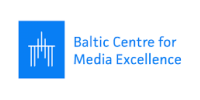Recommended Code of Conductand Ethics & Common Principlesfor Researching and MonitoringFact-checking
Deliverable 3.5 for the EU-funded project with the ID 118471, coordinated by the University of Tartu (UTARTU).
Signe Ivask, PhD | University of Tartu | ivasks@ut.ee
INTRODUCTION
The report, titled “Recommended Code of Conduct and Ethics for BECID Fact-checkers: Common Principles for Researching and Monitoring Fact-checking,” reflects on the first results of a two-year BECID project aimed at combating information disorders and promoting media literacy in Estonia, Latvia, and Lithuania.
The Baltic Engagement Centre for Combating Information Disorders (BECID) includes experts from the Baltic countries (Estonia, Latvia and Lithuania), supported by the European Commission and associated with the European Digital Media Observatory (EDMO). The University of Tartu coordinates this initiative, which comprises four universities, four factchecking companies, media companies’ fact-checking units, and the non-profit organisation Baltic Media Literacy Center.
BECID’s mission is to unite experts in fact-checking, media literacy, and academic research to detect and analyse disinformation campaigns and provide content and support to mainstream and local media and public authorities in exposing harmful disinformation.
This report serves three primary audiences:
- Fact-checkers: It provides them with questions and thoughts on how to approach factchecking, important principles and professional questions-dilemmas to keep in mind.
- Researchers: It offers insights into common principles applicable to assessing factchecking endeavours in the Baltics.
- General Public: It helps those outside the project understand and grasp the BECID
project’s core aspects.
Read the full report here:





